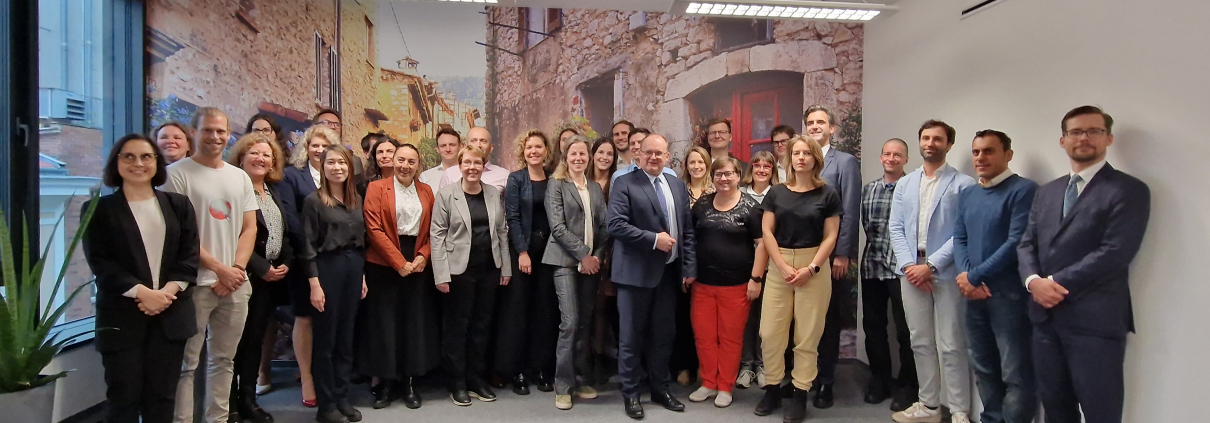What is the future of the EURIPID collaboration?
On 19 October 2023 the EURIPID collaboration held its annual Meeting of the Board of Participants (BoP). EURIPID members from 20 countries gathered at the premises of the Polish Agency for Health Technology Assessment and Tariff System (Agencja Oceny Technologii Medycznych i Taryfikacji, AOTMiT) in Warsaw. The meeting was facilitated by Momir Radulović, the Director of the Slovenian Medicines Agency (JAZMP) who is currently the elected chair of the EURIPID’s BoP. The welcoming speaches by Maciej Miłkowski (Deputy Minister at the Polish Ministry of Health), Roman Topór-Mądry (President of AOTMiT) and Laure Geslin (European Commission) emphasised that EURIPID is a very successful project and within the European Union (EU) a best practice example of a member-state driven initiative. Furthermore, the speakers highleted EURIPID’s contribution to ensure that patients have access to affordable medicines and that health systems remain financially sustainable. During the meeting participants were informed by the project manager Gergely Néméth about the current state of play of the EURIPID collaboration.
This year, Croatia and Malta joined the EURIPID collaboration, raising the number of participating countries to 28. Furthermore, the BoP has also approved the participation of Romania.
A major part of discussions at this year’s BoP meeting was reserved for the future of EURIPID. When EURIPID started more than 10 years ago national competent authorities on pricing and reimbursement of pharmaceuticals faced different challenges than today. Therefore, EURIPID members initiated at the last BoP meeting 2022 in Oslo a process of getting EURIPID ready for the future and its challenges. An important part of this development will be covered by the current EC grant EURIPID ACCESS which aims to analyse options and to develop early warning mechanisms in the EURIPID website and database to detect excessive pricing. The major guiding principle for EURIPID’s further development will be to turn information into knowledge and how public institutions in the field of pricing and reimbursement of medicines can benefit from it.



